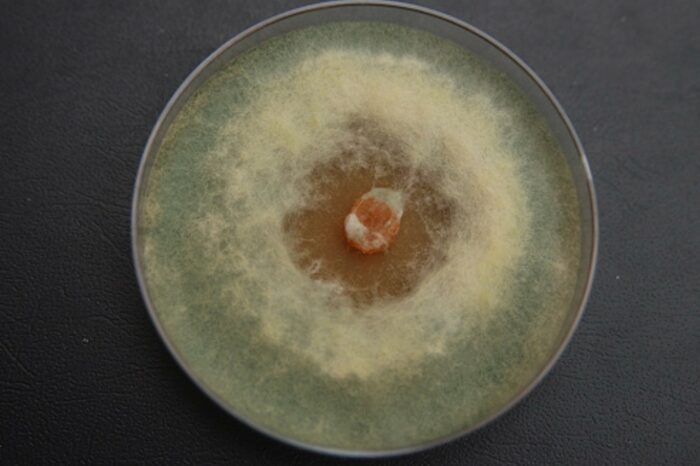
The project “Joining forces to exploit the mycobiota of Asia, Africa and Europe for beneficial metabolites and potential biocontrol agents, using-OMICS techniques (MYCOBIOMICS)” led by Prof. Marc Stadler, Helmholtz Center for Infection Research, Germany, in cooperation with Dr. Jennifer Luangsa-ard, Team Leader of Plant Microbe Interaction Research Team, and research institutes from Europe and Africa, was successfully funded by the European Commission’s H2020-MSCA-RISE framework for a total amount of EUR 1,375,400 (THB 51,035,377).
MYCOBIOMICS focuses on both basic and applied mycology to explore beneficial secondary metabolites for the development of antibiotics and eco-friendly alternative to chemical pesticides through international network of research organizations and staff exchange. MYCOBIOMICS embarks upon the success of H2020-MSCA-RISE project “Golden mycological triangle-joining forces to exploit mycological biodiversity for novel anti-infectives and other beneficial metabolites” (GoMyTri). Since 2014, GoMyTri has laid the groundwork for interdisciplinary collaboration among leading research institutes from Germany, the Netherlands, and Thailand. The collaborative research, staff exchange, and cross-sector training conducted in GoMyTri resulted in high-quality joint scientific publications, as well as exchange of young scientists. MYCOBIOMICS, as a result, continues to solidify the consortium and diversify know-how by involving prestigious research institutes and universities from Austria, the Czech Republic, Kenya and South Africa.
With the implementation of Omics technologies, MYCOBIOMICS expands its research on fungal biodiversity and ecology, and potential applications of fungi in biotechnology by using genomics, molecular biology and transcriptomics to discover novel useful secondary metabolites and identify candidates for anti-infective drugs. Furthermore, MYCOBIOMICS aims to explore two distinctive fungal genera that are crucial in global agriculture: Fusarium spp. and Trichoderma spp. The knowledge and technology-shared within the consortium will enable the scientists to tackle health and agricultural issues posed by detrimental fungi and how to combat them.

MYCOBIOMICS is a 4-year project participated by 8 research institutes and universities from 7 countries:
- – Helmholtz Center for Infection Research (HZI) – Germany
- – Institute of Microbiology, Czech Academy of Sciences (IMIC) – Czech Republic
- – Westerdijk Fungal Biodiversity Institute – The Netherlands
- – University of Natural Resources and Life Sciences (BOKU) – Austria
- – AIT Austrian Institute of Technology (AIT) – Austria
- – National Center for Genetic Engineering and Biotechnology (BIOTEC) – Thailand
- – Egerton University (EUK) – Kenya
- – Forestry and Agricultural Biotechnology Institute (FABI), University of Pretoria – South Africa
